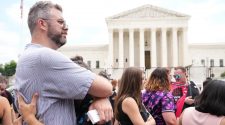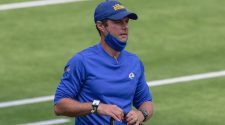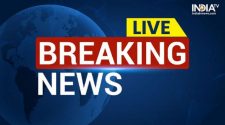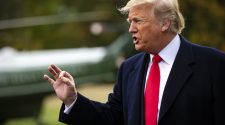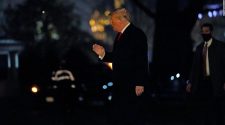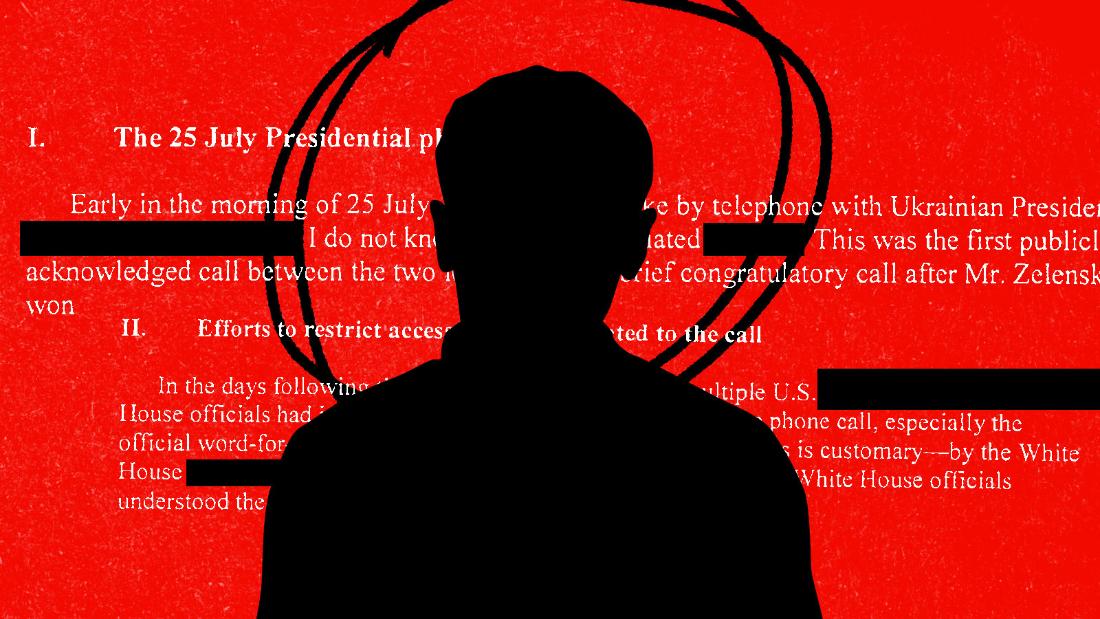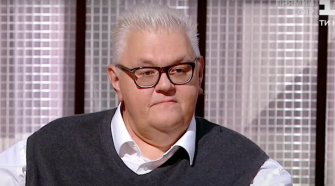Just as he was trying to move on from allegations his campaign colluded with Russians against Hillary Clinton in 2016, Trump was ramping up efforts to get Ukraine to stir up trouble for his prospective 2020 challenger Biden. He used official channels to ask the Ukrainian President to look into the Biden family, openly asking Zelensky for a favor during a phone call on July 25 and then suggested his attorney meet with Ukrainian officials. In the July 25 phone call, the Ukrainian President mentioned plans to buy US-made Javelin missiles — which he needs to help guard against potential Russian provocations. At the very same time, Trump was sitting on to nearly $400 million in aid to Ukraine, which he has argued was on hold while he leaned on European countries should give more to Ukraine.
Volodymyr Zelensky, President of Ukraine
Rudy Giuiani, Trump attorney
William Barr, US attorney general
Mike Pompeo, US Secretary of state
Mike Pence, vice president of the US
When Trump canceled a September trip to Poland during which he was supposed to meet with Zelensky, Pence went instead. The vice president told reporters after the meeting that he did not discuss Biden, but that he talked to Zelensky in great detail about Trump’s interest in rooting out corruption in Ukraine, and also about US aid to Ukraine.
Joseph Maguire, acting director of national intelligence
A retired vice admiral and former Navy SEAL, Maguire stepped into his role when former DNI Dan Coats resigned in August. Maguire initially withheld the whistleblower complaint from Congress because his attorneys counseled him that Trump was not part of the intelligence community. Weeks into the job, he’s already been called to testify before Congress over the Ukraine scandal. In that congressional testimony he defended the whistleblower for coming forward.
Pat Cipollone, White House counsel
Adam Schiff, House Intelligence Committee Chairman
A former federal prosecutor, Schiff is a confidant of House Speaker Nancy Pelosi. She has designated the California congressman to take the lead in the Democrats’ inquiry into the whistleblower complaint. He is a frequent target of Trump, who refers to him as “liddle” Adam Schiff.
Devin Nunes, House Intelligence Committee Ranking Member
If Schiff is the prosecutor, Nunes — also from California — will play the role of Trump’s defender. Long an apologist for the President on the Russia investigation, Nunes has pivoted to defending Trump on Ukraine. With his seat next to Schiff, he will play an important role.
Nancy Pelosi, Speaker of the US House of Representatives
Yuriy Lutsenko, former Ukrainian General Prosecutor
A holdover from the administration that preceded Zelensky in Ukraine, Lutsenko was Giuliani’s original target to influence toward an investigation of the Bidens and Burisma. Lutsenko said in May he had looked to reanimate the investigation, but also that there was no evidence of any wrongdoing by Hunter Biden. His comments to a reporter for The Hill that there should be an investigation into whether Ukrainians had meddled in the 2016 US election may have helped fuel Giuliani’s focus on Ukraine. He resigned in August.
Vladimir Putin, President of Russia
Putin is not directly related to the whistleblower complaint, but his shadow looms over this entire story and generally over Trump’s presidency. The reason Zelensky and Ukraine want the military aid is their standoff with Russia over Russia’s 2014 annexation of Crimea.
Andriy Yermak, aide to Ukrainian President
A top adviser to Zelensky, Yermak met with Giuliani in Madrid a week after Trump’s call with Zelensky. According to the whistleblower complaint, various US officials said this meeting was a “direct follow-up” to the July 25th call.
T. Ulrich Brechbuhl, State Department Counselor
A West Point classmate and business partner of Pompeo, Brechbuhl is mentioned in the complaint as having listened to Trump’s call with Zelensky as it occurred. The State Department has denied he listened in.
Kurt Volker, US Special Representative for Ukraine Negotiations
The administration’s point person on Ukraine, Volker is a key figure in this story. He’s mentioned in the whistleblower complaint as trying to advise Ukrainian officials on how to deal with Trump and Giuliani. It was Volker who apparently set up the meeting between Giuliani and Yerkmak, Zelensky’s aide. He is essentially a volunteer, however, and still works for BGR group, a Washington lobbying firm that has represented the government of Ukraine.
Gordon Sondland, United States Ambassador to the EU
Mentioned in the complaint alongside Volker, the two were said by the whistleblower to be advising the Ukrainian leadership about how to deal with Trump and Giuliani.
Marie Yovanovitch, former US Ambassador to Ukraine
John Durham, US Attorney for District of Connecticut
Mentioned in the whistelblower complaint because he was tapped by Barr to lead a probe into the beginnings of the Russia investigation and, according to the DOJ, was investigating Ukraine.
Michael Atkinson, Inspector General of the Intelligence Community
Stephen Engel, Director, Office of Legal Counsel
General counsel at an intelligence agency
John Eisenberg, a deputy White House counsel
John Demers, head of the Justice Department’s national security division; Jeffrey Rosen, deputy attorney general; Brian Benczkowski, head of DOJ criminal division
CNN’s Allison Malloy and Will Mullery contributed to this report.

